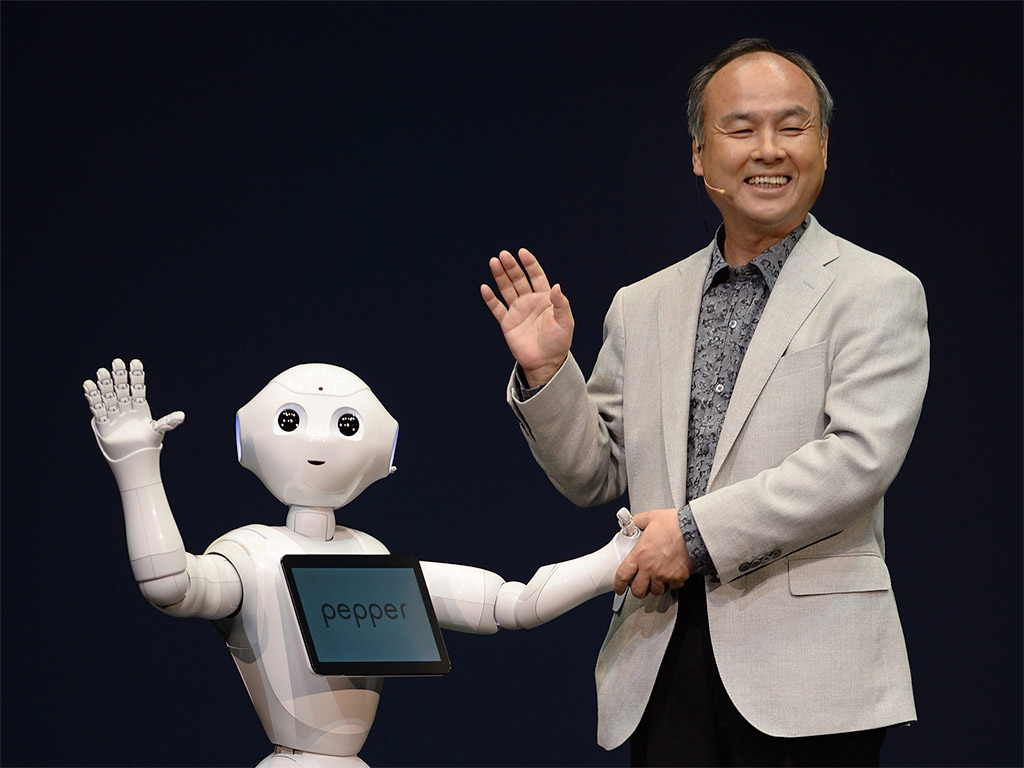SoftBank’s human-like robot Pepper will transform history, says CEO
Japanese company SoftBank has announced it will release Pepper, a personal robot capable of learning from human experience by early next year

Softbank's CEO Masayoshi Son proudly showcases Pepper, a human-like robot the conglomerate has been developing. Prototypes of the robot will be used in SoftBank's mobile phone shops
Tokyo-based software and internet conglomerate SoftBank expects to release the “first robot with emotions” by February 2015. Named Pepper, the robot is reportedly capable of growing more sophisticated over time, and, if successful, could mark one of the most significant developments in robotics to date.
“One hundred years from today, or two hundred years from today, the people will say that the history of computing changed from today,” said SoftBank CEO Masayoshi Son at a Tokyo press conference shortly after unveiling a prototype Pepper.
Pepper is capable of sophisticated human interactions and can upload any lessons learned to the cloud for other units to heed
Priced at 198,000 yen, or little under $2,000, Pepper is capable of sophisticated human interactions and can upload any lessons learned to the cloud for other units to heed. “Anything good is going to be collected, collective wisdom, learned by everyone. They are all going to evolve through the collective wisdom, by reading situations,” said Son.
The SoftBank CEO also took time to stress the distinction between Pepper’s humanlike programming and the so-called “left-brained” nature of robots available on the market today. Combining voice recognition with a computer capable of understanding complex human responses, Pepper is well equipped to undertake a number of challenges, whether it be babysitting, nursing or simple companionship.
Developed in partnership with Aldebaran, a French robotics company in which SoftBank bought a share back in 2012, the robot will be manufactured by Taiwan-based Hon Hai Precision Industry.
“The emotional robot will create a new dimension in our lives and new ways of interacting with technology,” said Aldebaran’s founder and CEO Bruno Maisonnier in a press release. “It’s just the beginning, but already a promising reality.”
Japan’s market for robotics came to approximately $8.38bn in 2012, and is forecast to expand threefold by 2020, according to a trade ministry report cited by Reuters. In a country ripe with labour shortages and an ageing population, robotics are seen as a vital contributor to Japan’s economic development moving forwards.













